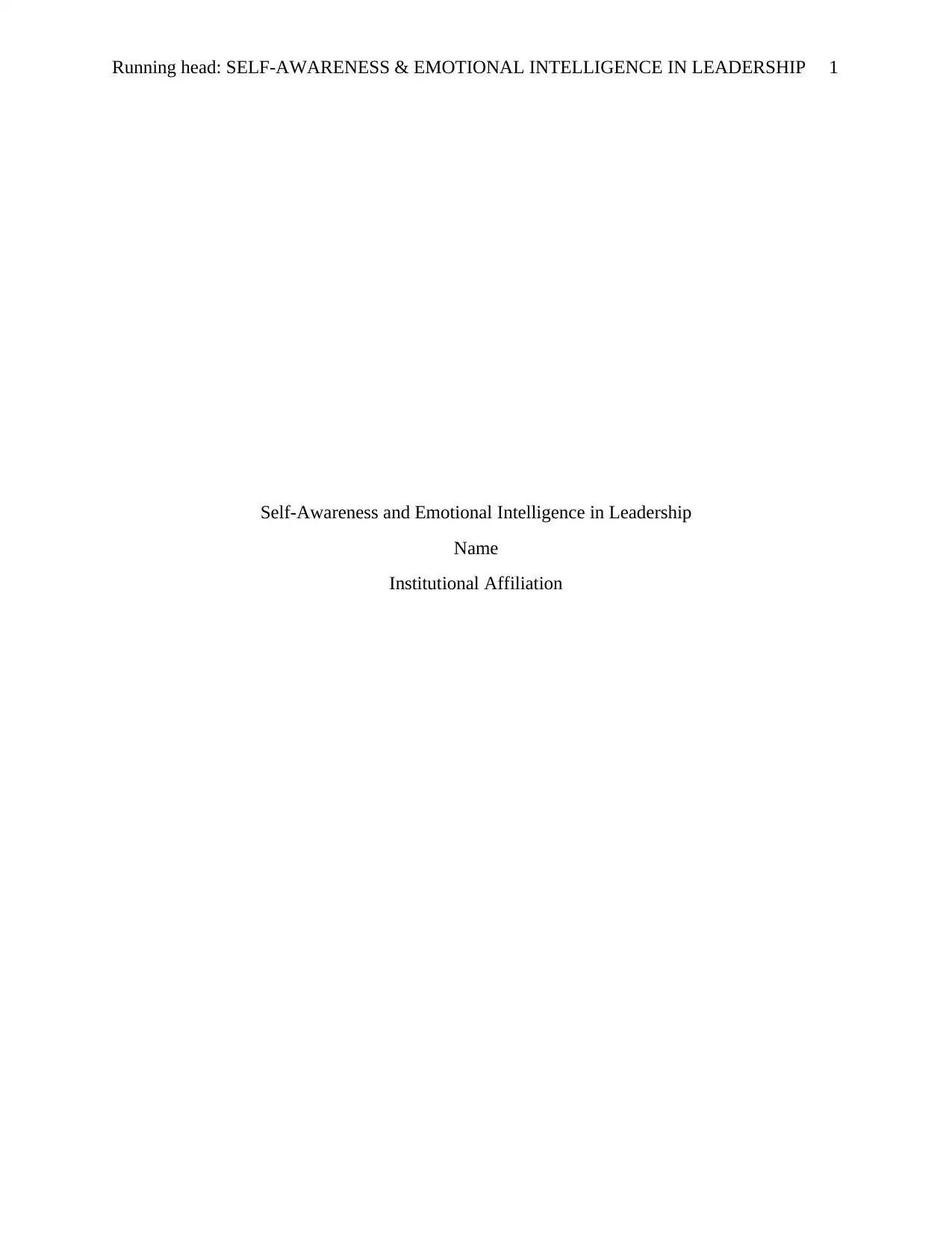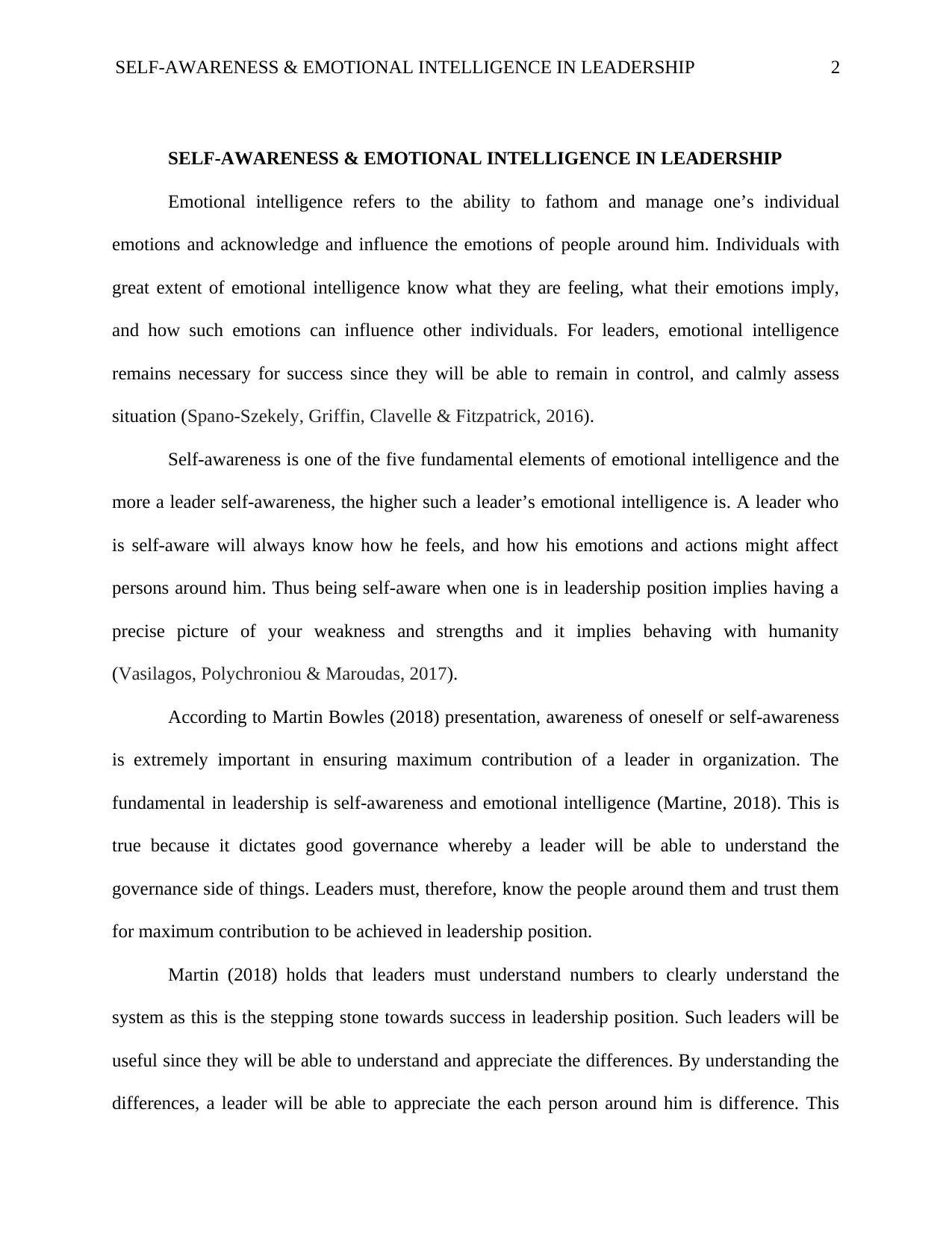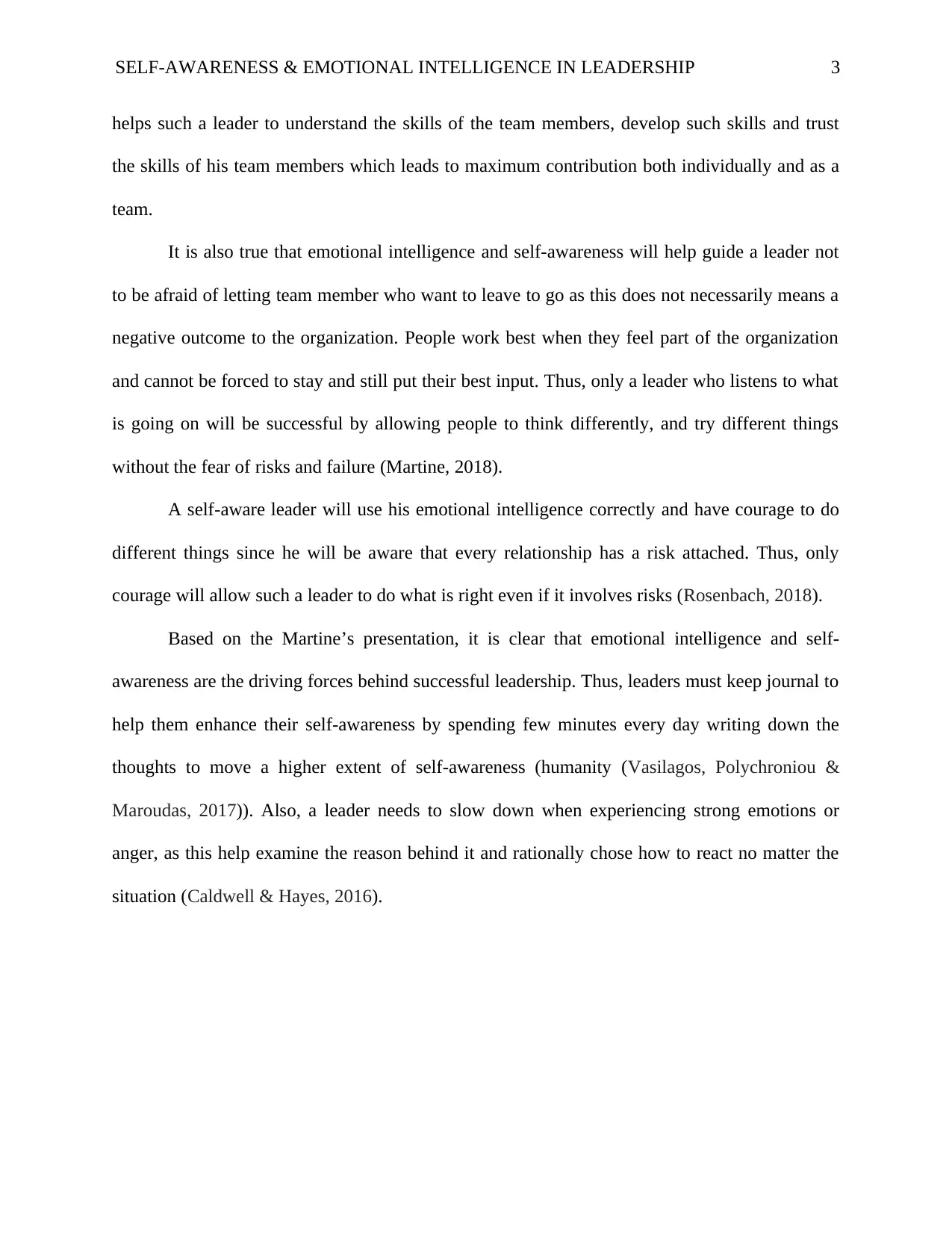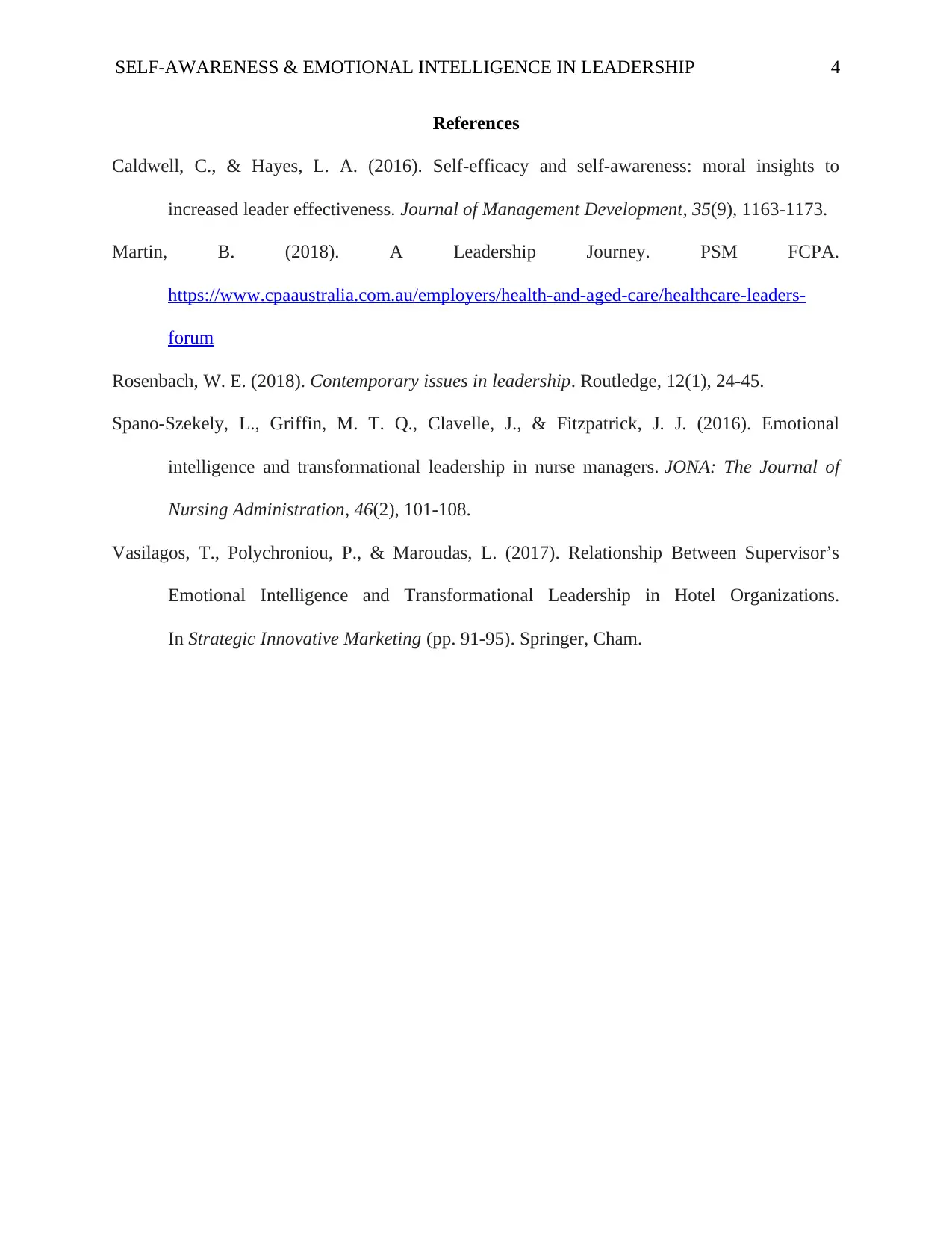Leadership in Healthcare: Self-Awareness and Emotional Intelligence
VerifiedAdded on 2022/11/13
|4
|813
|135
Report
AI Summary
This report provides a critical analysis of self-awareness and emotional intelligence in leadership, focusing on insights from Martin Bowles' presentation on 'A Leadership Journey' within a healthcare context. The analysis emphasizes the importance of emotional intelligence, which involves understanding and managing one's emotions and recognizing the emotions of others. It highlights self-awareness as a crucial element, enabling leaders to understand their strengths, weaknesses, and the impact of their actions. The report discusses how self-awareness and emotional intelligence contribute to ethical leadership, effective governance, and the ability to appreciate differences among team members. It also explores the significance of allowing team members to express their ideas and take risks. The report references Caldwell & Hayes (2016), Martin (2018), Rosenbach (2018), Spano-Szekely, Griffin, Clavelle & Fitzpatrick (2016), and Vasilagos, Polychroniou & Maroudas (2017) to support its arguments, providing a comprehensive understanding of the role of self-awareness and emotional intelligence in fostering successful and ethical leadership in healthcare environments.
1 out of 4











![[object Object]](/_next/static/media/star-bottom.7253800d.svg)